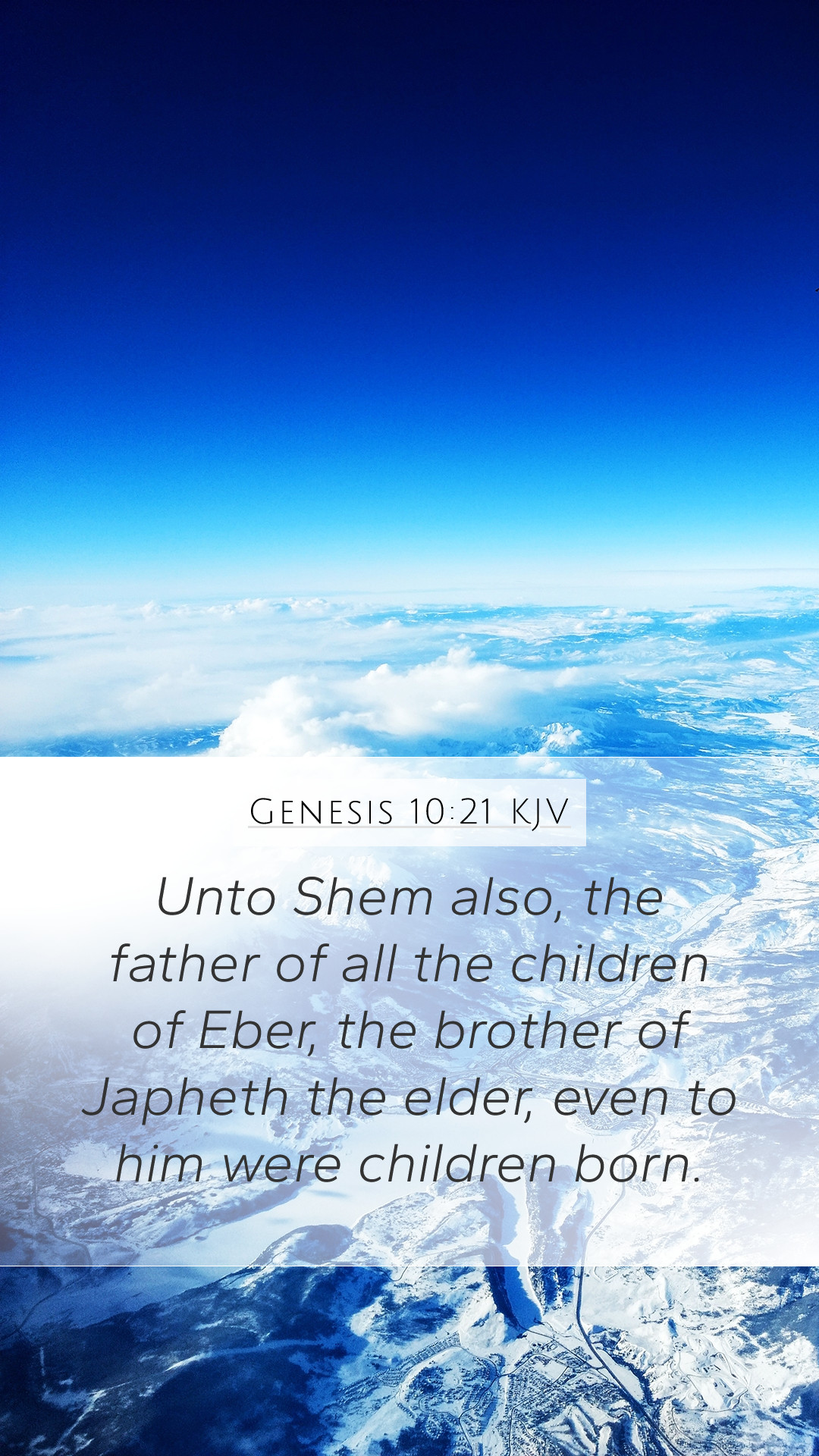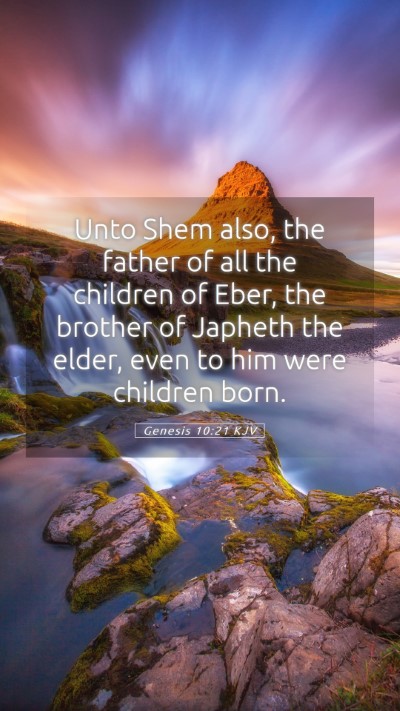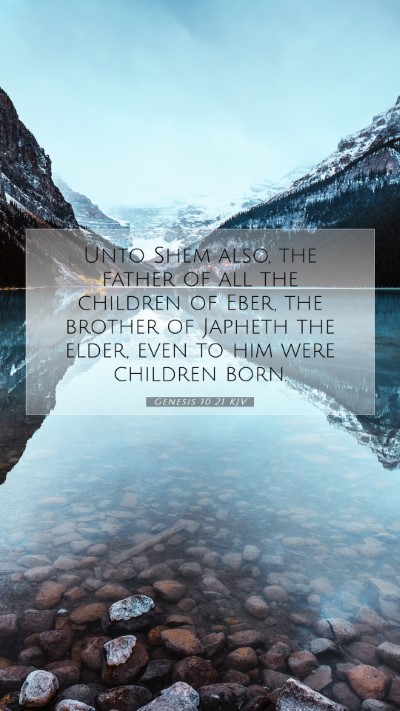Understanding Genesis 10:21
Genesis 10:21: "Unto Shem also, the father of all the children of Eber, the brother of Japheth the elder, even to him were children born."
In this verse, we find a genealogical account that is critical to the understanding of the early lineage of humanity following the great flood. The verse specifically highlights Shem, who is regarded as an important patriarch, and presents a connection to the lineage leading to both the Hebrew people and, ultimately, Jesus Christ. This commentary draws on insights from various public domain sources to unpack the significance of this passage.
Key Themes and Insights
-
The Importance of Shem:
The name Shem means "name" in Hebrew, indicating his prominence in biblical history. Matthew Henry notes the significance of Shem as a father of many nations, particularly the Semitic peoples, which include the Jews. His lineage is crucial as it leads to Eber, from whom the term 'Hebrew' is derived.
-
The Brotherhood of Japheth:
This verse highlights familial relationships, as it mentions Japheth, Shem’s brother. Albert Barnes elaborates on how the relationships among Noah's sons set the stage for the nations that would arise from them, emphasizing the unity and distinction established among these early descendants.
-
Covenantal Implications:
Adam Clarke points out that God's promises made to Noah's sons establish a covenantal framework for understanding God's plan for humanity. Shem's lineage is often seen as significant in the unfolding of biblical prophecy concerning the coming Messiah, thereby enriching the theological implications of this genealogy.
Bible Verse Commentary and Exegesis
This passage is crucial for understanding Scripture as it lays a foundation for the national identities that will emerge in later chapters. The significance here extends beyond mere genealogy; it echoes the fulfillment of God's promises to His creation.
By delineating Shem as the progenitor of various nations, the text suggests a divine orchestration of human history. This is particularly relevant for modern readers engaging in bible study insights and biblical exegesis, highlighting how historical context enriches our understanding of the divine narrative.
Historical Context of Genesis 10:21
The genealogies in Genesis function as more than just records of ancestry; they illustrate God’s ongoing relationship with mankind. Insights from bible study resources help to clarify the origins of various nations and the significance of these early verses in understanding later biblical events.
Related Bible Cross References
- Genesis 11:10-26: Further genealogy that continues from Shem.
- Luke 3:36-38: New Testament lineage that traces back to Adam through Shem.
- Romans 9:5: Paul's reference to Christ's lineage, emphasizing the significance of Shem's descendants.
Applying Bible Verses to Daily Life
Understanding Genesis 10:21 provides a backdrop for reflecting on one's own family history and the larger narrative of humanity. In applying these Bible verse explanations to our lives, we can consider how our spiritual lineage connects us to God's promises and unfolding redemptive history.
Conclusion
The exploration of Genesis 10:21 serves as a valuable exercise for anyone engaging in online Bible study or seeking a deeper understanding of Scripture. Through examining biblical genealogies, we grasp the interconnectedness of God's creation and His sovereign plan for humanity. By reflecting on this verse and its implications, individuals can draw meaningful insights that enrich their faith and spiritual journey.


